Presented by Kelly Darr, Legal Director at Disability Rights PA, on Thursday, March 9, 2023, at 7 p.m. Please RSVP to Erin Kelly, Down Syndrome Center of Western PA, at [email protected].
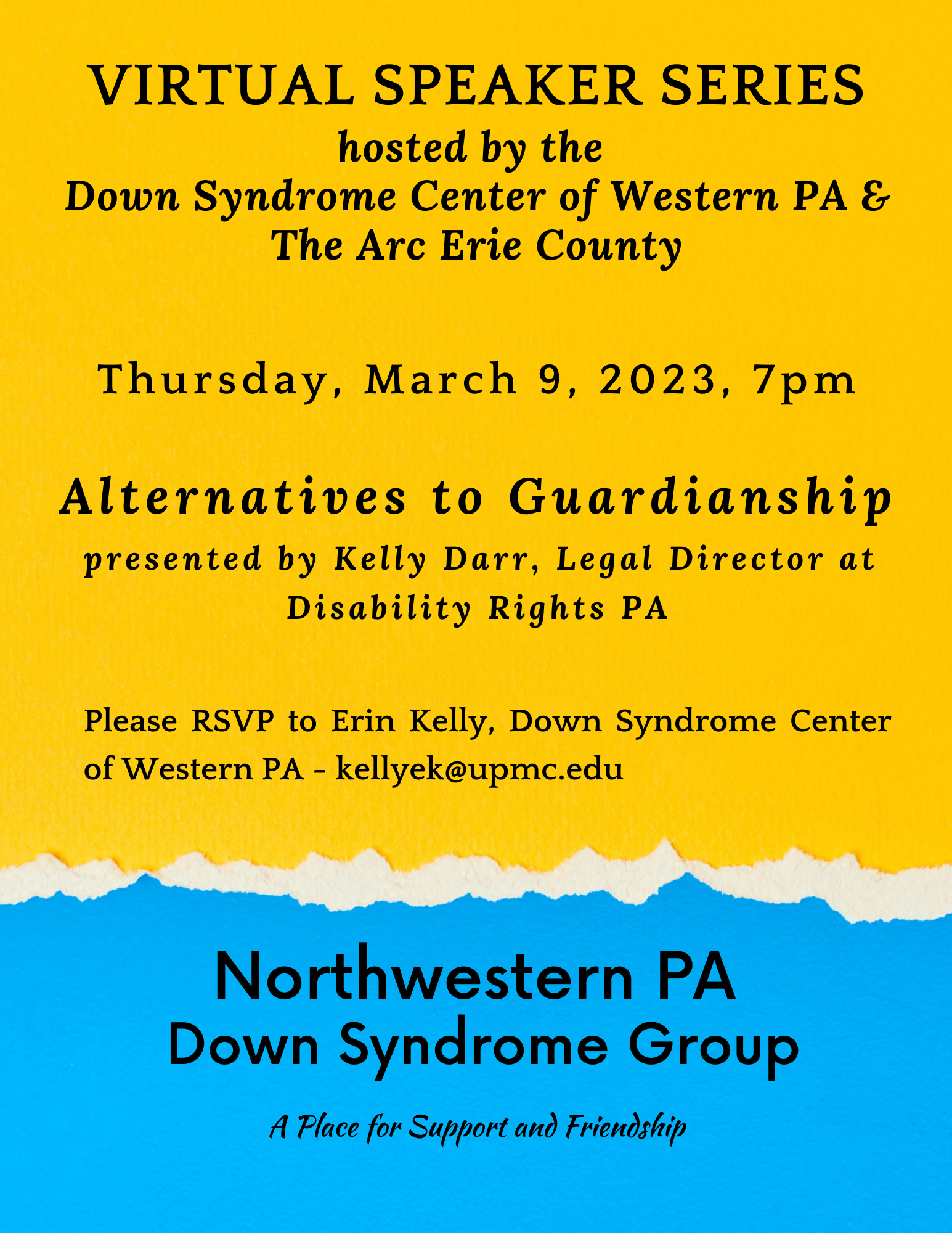
Presented by Kelly Darr, Legal Director at Disability Rights PA, on Thursday, March 9, 2023, at 7 p.m. Please RSVP to Erin Kelly, Down Syndrome Center of Western PA, at [email protected].

Join 13th Hour Entertainment and Autism Connection of PA for a casual night out at Tonidale Pub in Robinson Township. Our friends at A Magical Fundraiser are hosting “A Magical Connection”, benefitting the region’s autism community, and you can get involved in some very important ways!
Contributions raised will fund: help for families seeking resources, development of inclusive, sensory friendly areas across Pennsylvania, first responder training, virtual and in-person workshops, school homeroom and assembly talks about hidden differences, educator and administrative training, justice system reform, and so much more.
Dinner
Mindwarp Show featuring Mentalist/Magician Steve Haberman with the vocal talents of Tracy Lynn
Disc Jockey and Dancing by Nite Life DJz
Basket Raffle and 50/50 drawing
If you have questions about this event, feel free to call Tracy Lynn at 13th Hour Entertainment, (412) 926-3472 or email her at [email protected].
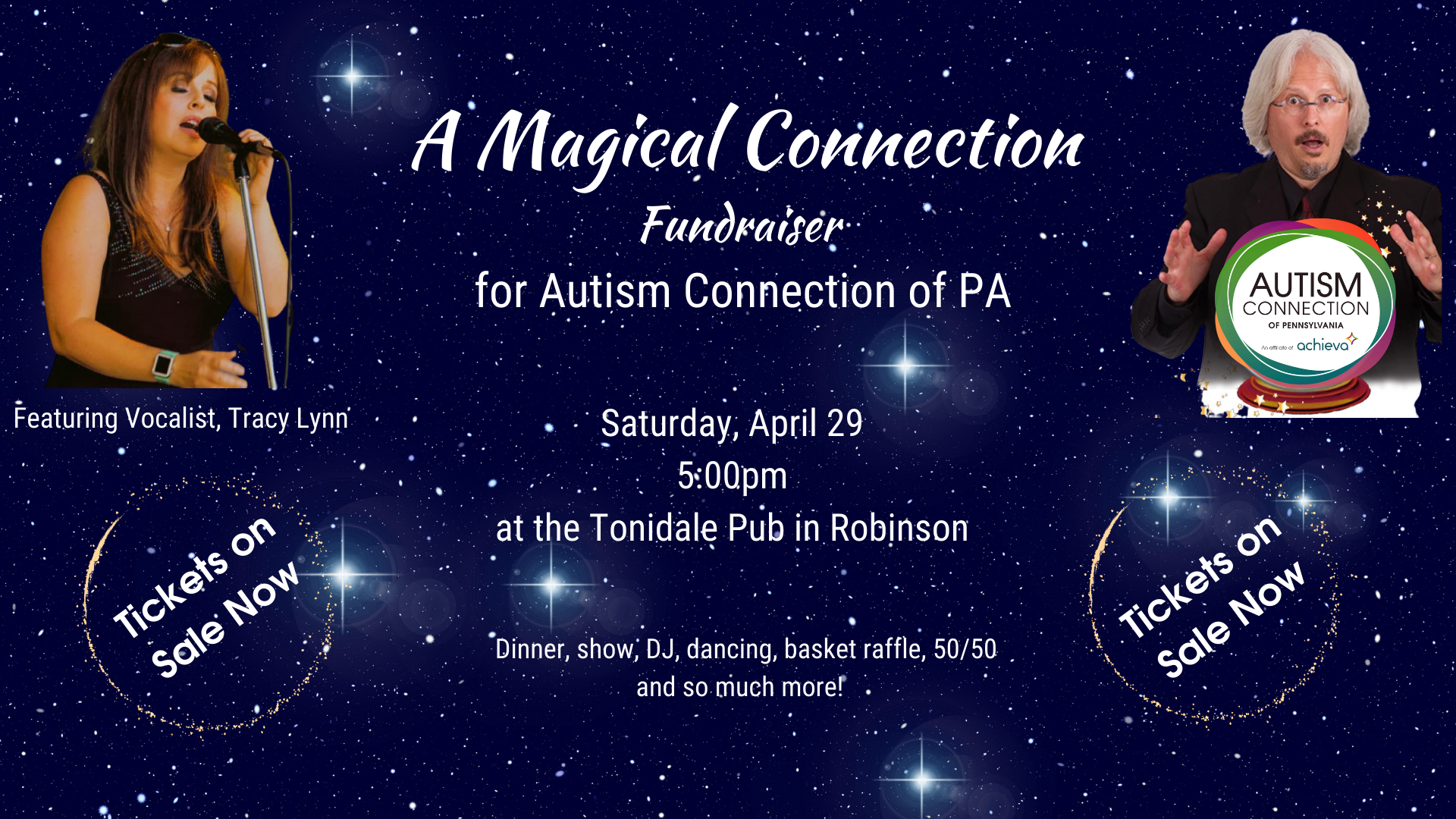
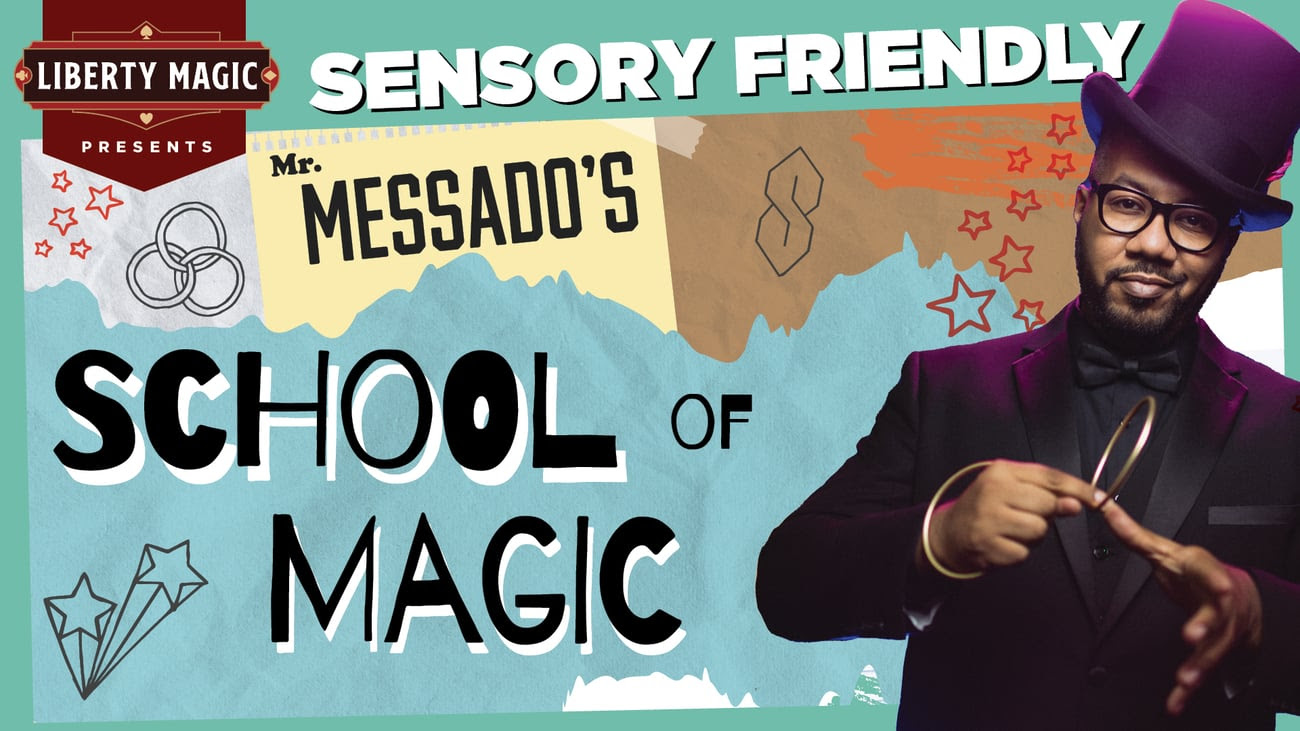
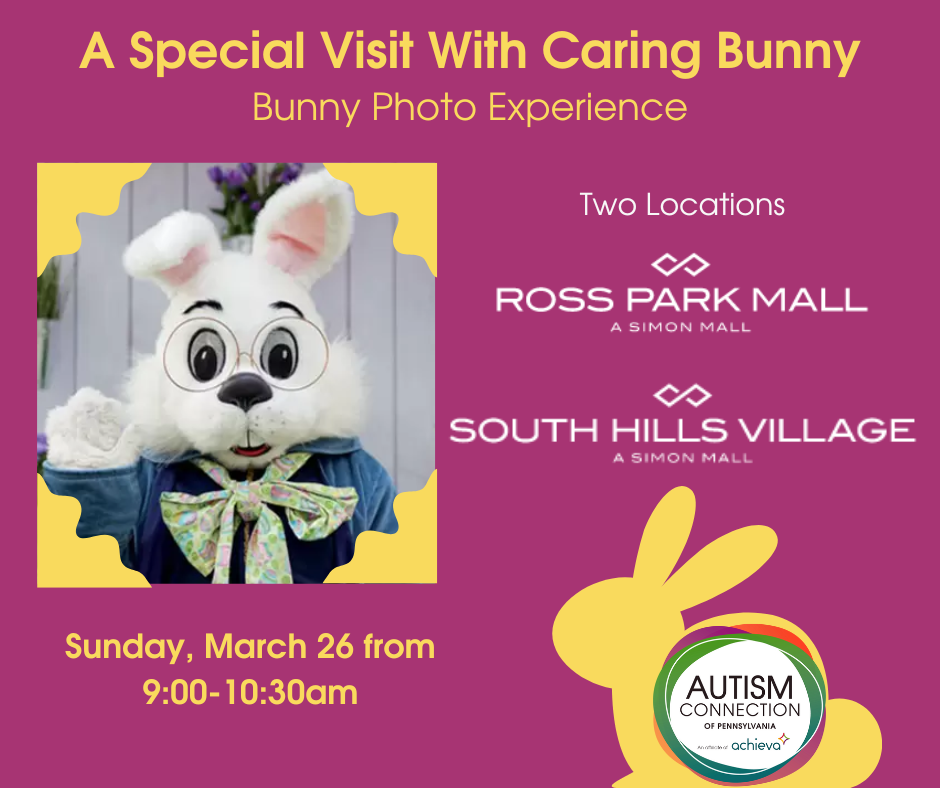
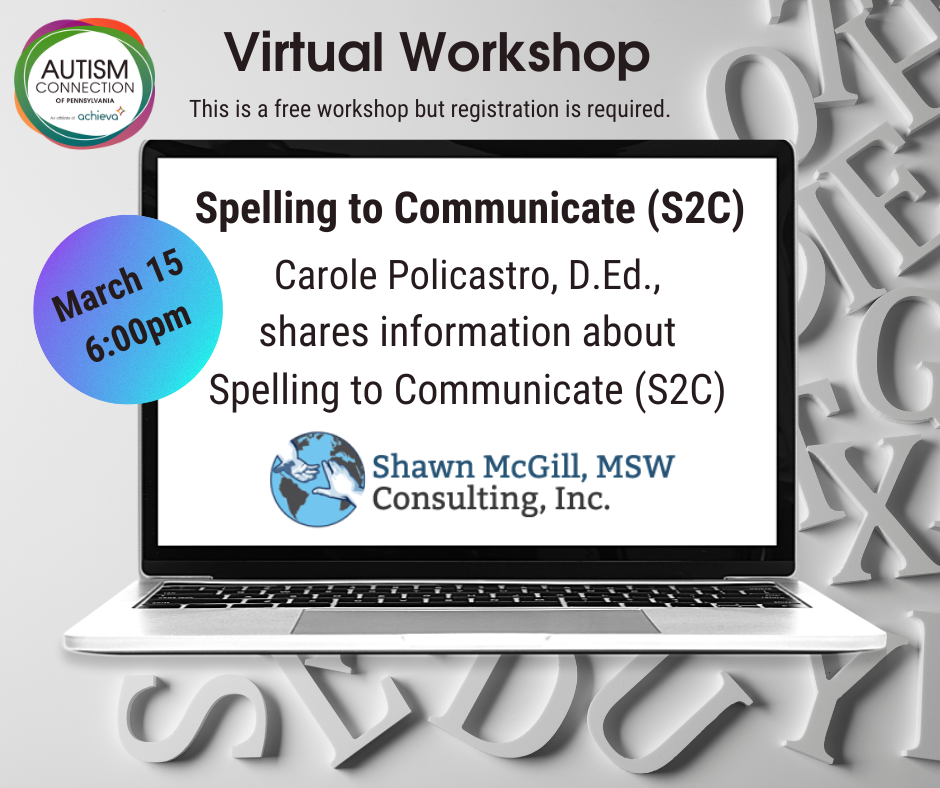
International Epilepsy Day is observed annually on the second Monday of February to raise awareness and to promote understanding and acceptance. The theme for International Epilepsy Day 2023 is “Epilepsy in the Workplace,” which highlights the challenges people with epilepsy face at work, and the importance of creating inclusive and supportive environments.
The earliest mentions of epilepsy can be traced back to Babylonian tablets from around 2000 BCE, where it was referred to as the “sacred disease.”* In ancient Greece, the physician Hippocrates wrote extensively about the condition, and attempted to distinguish it from other conditions, such as possession by demons. The word “epilepsy” itself comes from the Greek word “epilambanein,” which means “to seize.”
Epilepsy and autism are two distinct medical conditions, but they can co-occur. According to the Centers for Disease Control and Prevention (CDC), approximately one-third of people autistic people also have epilepsy. This overlap is more commonly seen in people with severe autism and intellectual disability.
Epilepsy is a neurological condition characterized by recurring seizures, which are sudden and brief disturbances in the electrical activity of the brain. There are many different types of epilepsy, and the exact cause of the seizures can vary. Autism, on the other hand, affects communication, social interaction, and behavior. It is a spectrum disorder, which means that the symptoms and severity can vary greatly from person to person. It is important to note that while epilepsy and autism can co-occur, one does not cause the other. If someone has both conditions, they will typically receive separate diagnoses and treatment plans for each.
If you have questions about epilepsy, visit our friends at the Epilepsy Association of Western and Central PA.
** “The Diagnostic Handbook: A Babylonian Terrestrial Atlas” by Emma Wasserman, Brill, Leiden, 2000.
We learn a lot from individual histories and situations thanks to people trusting us with their personal stories and advocacy needs. Over the years, some situations have revealed that an additional medical or psychological diagnosis, or both (often a psych diagnosis is rooted in medical issues) may be the real culprits causing someone’s suffering. Autism is not the only difference a person can have, and we need to look closely at ourselves, and the people we care about. We also need to help others see folks for the complex and interesting beings that they truly are.
Imagine someone diagnosed with Type I, or juvenile diabetes, at age 12, and for the rest of their life all issues were attributed to that. Headaches? It’s the diabetes. Vision issues? It’s the diabetes. Fatigue and nausea? – you get the picture. And what if those symptoms were coming from treatable migraines but never prevented or resolved by regular migraine treatment? A person might – and many do – suffer for decades if they are only seen as having one issue as the cause of everything wrong, while something else is going on. They have more than “one thing” and need to be treated as such.
We support three unrelated people who each have experienced: job loss, eviction, academic punishment and expulsion, legal issues, getting lost during travel, and social problems. All three have an autism diagnosis, and all three had been in car accidents from four years to decades ago! Once we started to say, “This does not seem like your autism,” and started referring them to traumatic brain injury (TBI) evaluations and treatment programs, many of their emotional burdens fell away.
They felt the same feelings of being different and not being able to move forward that many undiagnosed autistic adults feel. The additional, correct diagnosis of traumatic brain injury has resulted in feelings of relief, being finally understood, and belonging to a new support community. Are they still autistic? Yes! Can they be helped by a couple of different specialists? Also, yes. Combined therapies are doing great things!
We are all many “things” at once. Lazy, hungry, and curious, a chef, Netflix watcher, and a bookworm, a housecleaner, gamer, and a guardian, even a cat AND a dog lover! We can also be autistic and hypoglycemic, nearsighted and have tinnitus, or have anxiety and joint issues. Each of us exists in combinations of gifts, needs, strengths, interests, and biological differences. So please consider another look at yourself or someone you care about.
If things are not getting better, or they are worsening, or something has been bothering you for a long time and you keep putting off a checkup — trust your instincts! Get and go to a doctor’s appointment. Contact us to talk things over — we know cross-disability professional friends, and can sometimes help with specialist medical referrals. Hopefully we can get you to a new “right place” to meet your needs. Let’s take a clear look at ourselves in this new year, together and with the tailored support each one of us deserves.